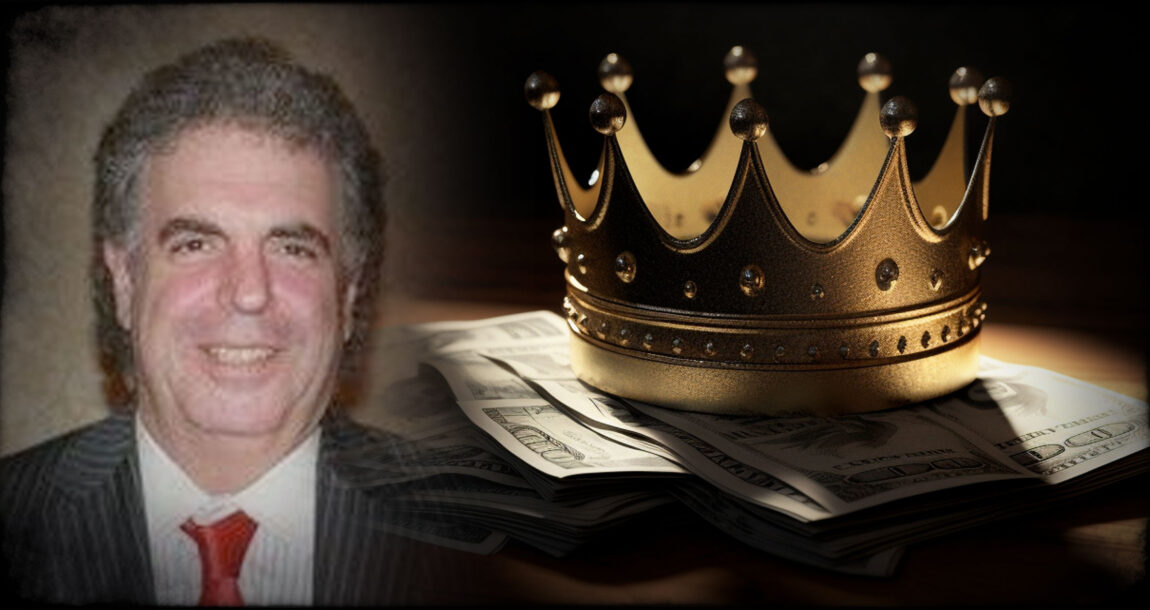After 8-hour hearing, ‘Annuity King’ sentencing continued to Jan. 31

Sentencing for Phillip Roy Wasserman was continued Friday after nearly eight hours. Judge Charlene Edwards Honeywell will reconvene the hearing on Jan. 31.
The judge had expressed a desire to wrap up sentencing in one day, but it wasn't to be. Honeywell denied motions for acquittal and or a new trial on Wednesday and Thursday. She also rejected Wasserman's motion to withdraw his guilty plea to additional counts of tax evasion.
Wasserman was convicted May 15 on nine felony counts. The three most serious – wire fraud, mail fraud and conspiracy to commit wire and mail fraud – all carry maximum sentences of 20 years. The self-styled "Annuity King" in Florida promotions, Wasserman ran a fraud totaling $6.3 million, the government alleged, money it seeks to recover.
The sentencing hearing featured several victim impact statements, and testimony by character witnesses for Wasserman. According to court documents, forensic accounting investigator Franklin T. Worrell testified extensively for Wasserman.
Wasserman spent "a significant amount of the victim-investors’ money" to finance a lavish lifestyle that included a luxury personal residence, a beach house on Casey Key, Tampa Bay Lightning season and playoff tickets, concerts and other shows, vehicles, jet skis, jewelry, personal celebrity entertainment, gambling, retail shopping, home improvements, personal insurance, and a host of other expenses for his personal benefit and the benefit of family members, the U.S. attorney's has said.
The government claims Wasserman, 67, with Kenneth Rossman, lied and concealed information to convince elderly victim-investors to put their money into Wasserman’s life insurance venture called, “FastLife.”
Wasserman disputes the government's accounting of his income and expenses. Restitution and forfeiture issues will be dealt with on Jan. 31, court documents say. The government seeks nearly $6.9 million from Wasserman.
Sentencing: objections heard
The judge overruled several objections lodged by Wasserman, who is also a lawyer, during the sentencing hearing.
In its indictment, the government claimed that Wasserman avoided taxes in the years 2004, 2005, 2007 and 2009. After years of collection efforts, the Internal Revenue Service wrote off more than $800,000 in uncollected taxes, the indictment said.
Wasserman faces a maximum of five years in prison and a $100,000 fine on the tax charge.
Sentencing was originally scheduled for September, but was delayed several times as Wasserman filed several appeals. The government asked for a sentence that starts at 27 years. Wasserman called that "effectively ... a life sentence," in a presentencing report filed Jan. 2.
Wasserman asked for a sentence of seven years probation in the report.
"Mr. Wasserman has been financially, personally, emotionally, and physically depleted by this case," the report states. "Mr. Wasserman has neither the inclination nor the energy to engage in any conduct that could even possibly be seen as illegal while under the watchful eye of United States Probation. A probation sentence is sufficient to adequately deter Mr. Wasserman from any future crimes."
InsuranceNewsNet Senior Editor John Hilton covered business and other beats in more than 20 years of daily journalism. John may be reached at [email protected]. Follow him on Twitter @INNJohnH.
© Entire contents copyright 2024 by InsuranceNewsNet.com Inc. All rights reserved. No part of this article may be reprinted without the expressed written consent from InsuranceNewsNet.com.
InsuranceNewsNet Senior Editor John Hilton has covered business and other beats in more than 20 years of daily journalism. John may be reached at [email protected]. Follow him on Twitter @INNJohnH.





Unleashing your creative strength: A guide to sales presentation confidence
Supplemental spousal liability coverage: A choice for New Yorkers to make
Advisor News
- EDITORIAL: Home insurance, tax increases harm county’s housing options
- Nationwide Financial Services President John Carter to retire at year end
- FINRA, FBI warn about generative AI and finances
- Prudential study: Babies born today will likely need nearly $2M to retire
- Economy performing better than expected, Morningstar says
More Advisor NewsAnnuity News
- Perspectives: Should I trust my retirement to an insurance company?
- Prudential Financial to Reinsure $7B Japanese Whole Life Block with Prismic Life
- Nationwide Financial Services President John Carter to retire at year end
- Pension Rights Center: PRT deals could lead to ‘nationwide catastrophe’ regulated
- Allianz Life Retirement Solutions Now Available Through Morgan Stanley
More Annuity NewsHealth/Employee Benefits News
- MHS’ Health Equity Program, MHS Serves, Launches Youth Mental Health Partnership
- Rule tweak disruptive to mental health care
Providers say change at federal level puts vulnerable at risk
Nebraska mental health providers say federal change puts vulnerable at risk
- New administration puts Medicaid on chopping block
- UnitedHealthcare names new CEO after Brian Thompson's killing
- Reform or ban? Prior authorization for health insurance is under negotiation in NC
More Health/Employee Benefits NewsLife Insurance News
- 9th Circuit: proof of harm required in California life insurance lapse lawsuit
- Legals for January, 24 2025
- U-Haul Holding Company Schedules Third Quarter Fiscal 2025 Financial Results Release and Investor Webcast
- BetterLife, CSA merger brings organizations with Czech-Slovak roots together
- AM Best Affirms Credit Ratings of Nippon Life Insurance Company and Its Subsidiary
More Life Insurance News